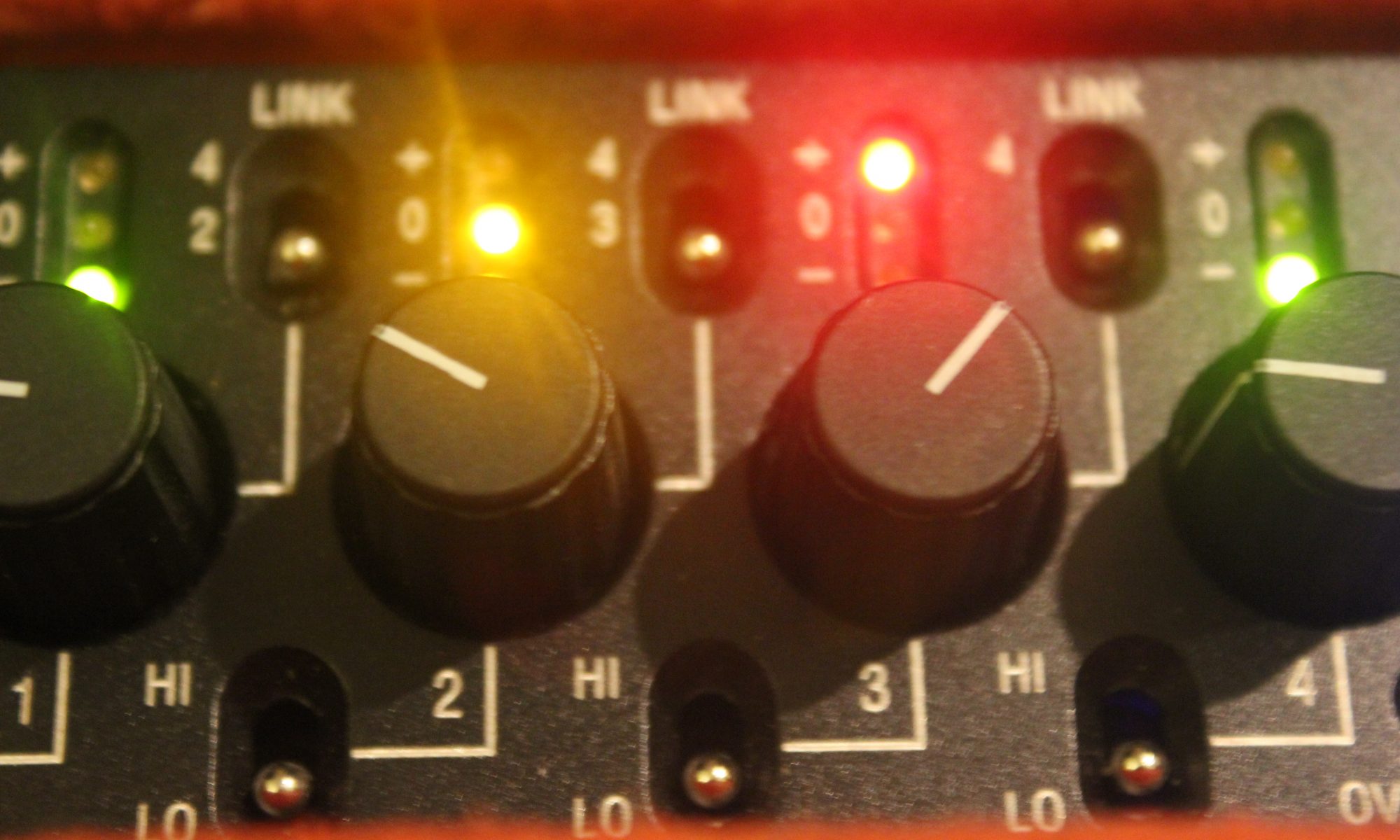This post has been a long time coming. Over years I keep being asked “How do you get into this?” as it seems like almost everyone has a different route in, however I’m going to try and point some in the direction of some of the more established paths. From talking to a number of people it seems to be a combination of these which has led them to becoming established freelancers. There have also been clear ways in previously, however they now seem to have disappeared – BBC staff careers for example. There aren’t many staff jobs available either- almost all of the work is freelance. This is also all quite UK specific and may be different in other regions.
What is Production Sound?
While making any kind of film or video production, there are 3 stages. I’m going to reduce them to a very basic level:
Pre-production = Planning
Production = Shooting
Post-Production = Editing
Production Sound is the sound recorded during production (it’s self explanatory). This is almost always what’s happening in front of camera. Most of it is dialogue.
Post-Production Sound is sound edited and recorded after shooting. This includes all the sound editing and mixing process and any extra recording required to complete the soundtrack.
Education
There are no formal educational requirements to doing the job. In fact, it’s basically down to whether you’re trusted to be able to do it or not. Education can really help with practical elements, though. Knowing your way around audio equipment; physics, electronics, acoustics, music technology are all useful in getting to know the principles of how it all works. Business skills and Psychology are also very useful- you’ll be running a business and we need to work with other people. There’s negotiation involved in a lot of what we do.
There is one specialist Location Sound Recording for Film and TV diploma course in the UK at the National Film and Television School. It’s a 15 month full time in person course and aimed at postgraduate level. Entry requirements are based more on interest and aptitude and bursaries are available. A number of people have gone through there as mature students having previously had a different career. Some advantages of this are you can learn in a non-pressurised environment and have access to professional equipment. The tutors are also working professionals. You’ll also be working with other students in other disciplines, so you can learn how to work with them and relationships can continue after the course has finished and well into later careers. They also do a week long short course, which is at least a solid introduction.
Non specific film courses can also help, especially in seeing how to work with other departments on set, but there won’t be as much sound specific teaching.
Trainee Schemes
Trainee schemes are probably the most formal route of getting into drama work. Either (“High End”) TV or Feature Films. It’s well worth being a trainee first- even if you’ve got years of audio experience or degrees, film sets are quite a specific thing and this is where you’ll learn etiquette. You’ll learn how the sound dept fits in with everything else.
Screenskills run two different trainee schemes. One for ‘High End TV’ and one for ‘Feature Films’. The reasons for this is that it’s from two different sources of money, the jobs aren’t technically that different on a day to day basis and some sound teams may go between feature films and high end TV. However, you can only apply for one – if you’re not sure, toss a coin. If you’re successful, you’re not guaranteed a placement through screenskills directly- however screenskills will pay a portion of your wage while on the scheme for any trainee work within the category you’ve applied for. It’s likely you’ll have to ask sound teams directly to get something out of this.
Sara Putt Associates is an agency, but they run a trainee scheme. In this case it’s not about getting work directly, but building up skills and a network in order to get more work and progress.
In both cases it’s a bit ‘Catch 22’, you need some work or track record to get on the scheme, but not enough that you’re already seen as established. Bear in mind that you are applying as a trainee, if you’re putting forward a CV saying “I know everything” it’s unlikely you’ll succeed.
You do not have to be on these schemes to be a trainee. I have started to see some sound trainee positions advertised now, in the past this hasn’t been the case.
Facilities Companies
The ‘traditional’ route into factual or factual entertainment TV is via facilities companies. TV productions often want a ‘one stop shop’ where they get a quote for all the equipment and crew for a job and this is where they get it. They need people to look after the hire equipment and it’s can be an entry level job (although having a degree in something audio or media related can certainly help). You’ll get familiar with a lot of different equipment and soon end up troubleshooting issues. If the facility does hire out staff, then they may send you out on jobs with them- you’ll typically be doing more work than a freelancer (as you’re on the payroll already) and quickly build up experience and contacts.
I’d suggest only looking at facilities with a dedicated sound department- most are camera focused, but you do need more experienced staff to learn from.
They’re not just useful if working directly for them. If you regularly hire out or buy equipment from them, or even come in to hire things out, they might have jobs come in and ask you to work freelance, or pass your details on. If you’ve got the time, do turn up in person, you might bump into someone useful even.
Networking
Personally, I’m really not keen on using this word when it isn’t used in conjunction with IP Addresses and RJ45 connectors [actually, learn that too]. However, this whole industry is based on recommendations- meet people, get involved, talk to us about batteries. We all have other people we pass work on to if we can’t do it. If one of us trusts you to be able to do something then they can suggest you for work. It doesn’t always happen.
There are organisations and communities- AMPS (Association of Motion Picture Sound), IPS (Institute of Professional Sound) and a number of communities on facebook (search for the ‘Film & TV Sound UK’ group). Some of the criteria seem a bit like you need to know people already, but they’re much more open to newcomers and students. If in doubt, apply anyway.
Come to stuff! I’m also much more receptive to people I’ve met, rather than a cold email or call (also I don’t get much work where I can hire a trainee).
Social media can also very useful for making and maintaining relationships, although it can work both ways. If you’re interesting, informative or amusing it helps. Asking good questions can go down well – things like “how would you deal with this situation?”, rather than “what’s the best microphone?”. Good answers are usually not a specific piece of equipment.
Microbudget World
Microbudget projects- things like short films and other personal projects often don’t make money but directors, producers and actors can use them for showreel and begin getting a track record. I’ve already got quite a detailed piece on them.
They’re a bit of a tricky thing for a newcomer, in some ways they’re a way of meeting more people involved in making film or tv and to get a bit of experience. However you’re working with other people who need experience and there’s more and more pressure to have a single person sound department on these jobs (as there’s no money), which means there’s no one to learn from. The sound recordist as head of department becomes an entry level position.
There isn’t much in it for more established production sound mixers in doing things like this and to have you as an assistant, except maybe trying out a new rig. If something like this comes up, that’s a great opportunity. However if you’re on your own, there’s not much you can learn from except your mistakes.
You can meet people in other departments who might recommend you for something else, though.
I’d say don’t buy equipment to do these jobs, but sometimes a very barebones kit might be useful for last minute requests. It’s often not stuff you’ll use later. Make sure you get money to hire it (even if you’re not paid), it’s not free to buy or maintain. Try and get to know other sound people who may also be able to rent equipment.
Conclusions/Confusions
Yes it is confusing, there isn’t a clear way to get in and make a career in production sound.
You’re looking for multiple jobs all the time, most of which aren’t advertised (and those which are are usually advertised due to to them wanting to pay less than they should be). It’s difficult to get going and sustain yourself financially in the beginning. You are reliant on a network of other people in both sound department and other departments.
The more you’re out on jobs, the more you’ll learn and you’ll work with more people.
Lots of this is being at the right place at the right time, try and get yourself in the right places as much as possible (and this can be online).
I expect this is especially difficult looking in as someone who isn’t middle class/white/male. Most of us are middle class, white and male, but it’s beginning to change and I’d like to be working with more people with different perspectives. Do apply for stuff (even if it seems financially impossible- there is help), come and say hello and things might happen.
It’s very unlikely you’re going to be able to make a living from this immediately. Work will be slow to pick up while you grow networks. Make backup plans- have a look at flexible unrelated work- delivery driving- for example, which can be moved if you get a job. If you’re put in a situation where you’re taking sound work out of financial necessity, it puts you in a weak position with negotiations and may damage both your future prospects and that of your peers.

